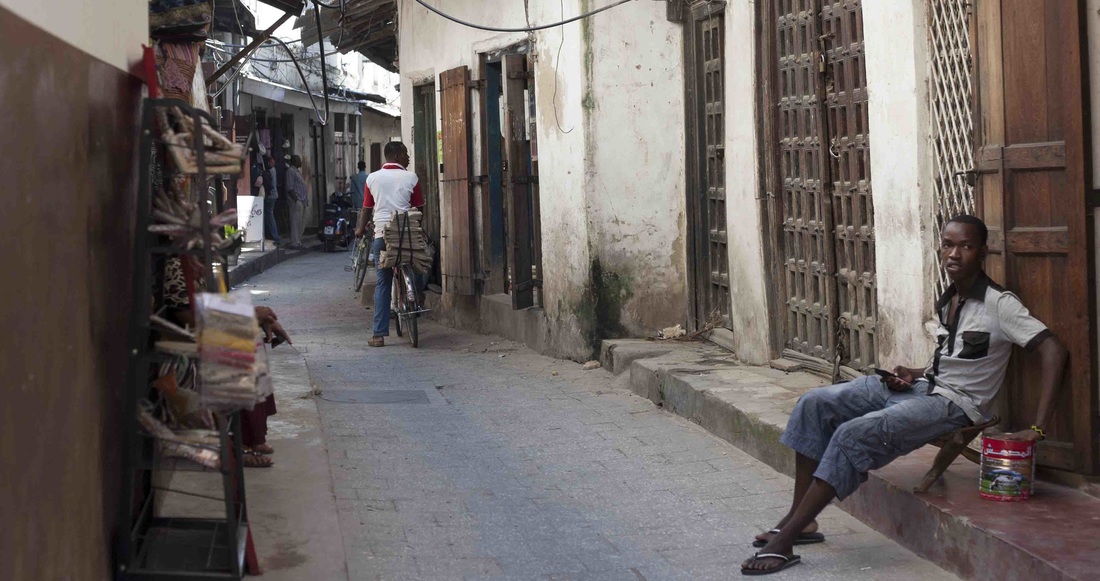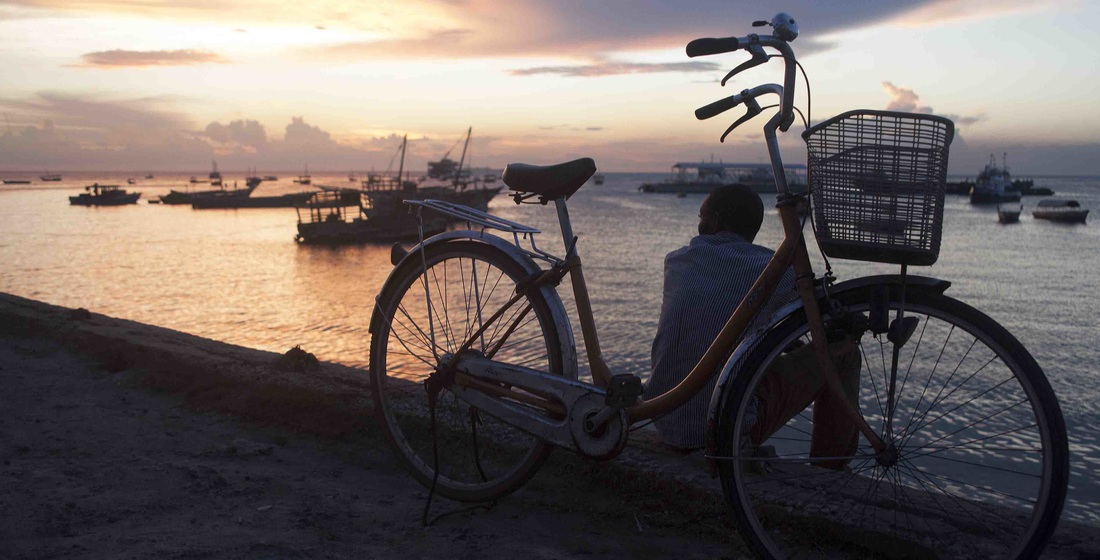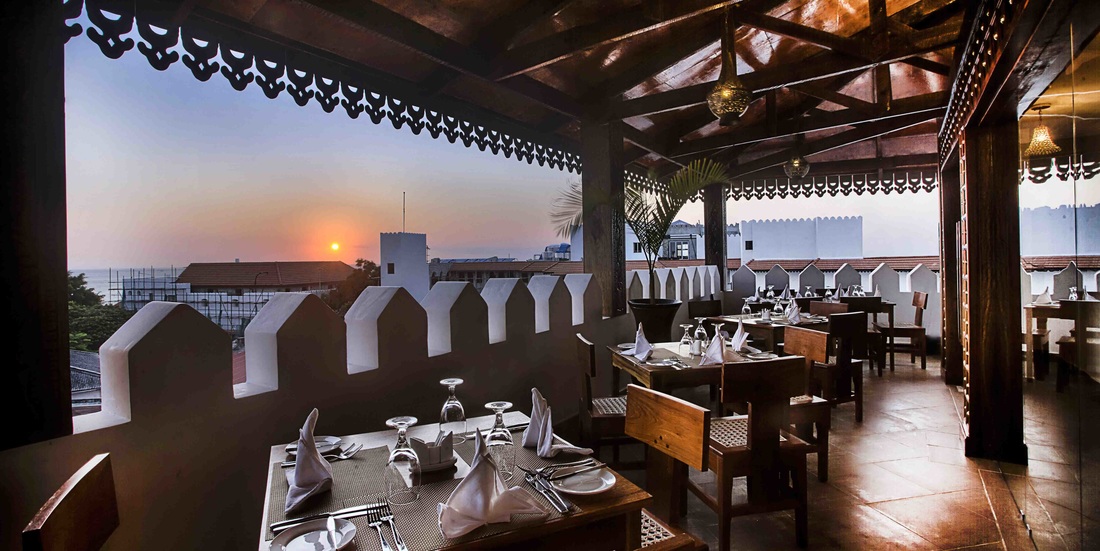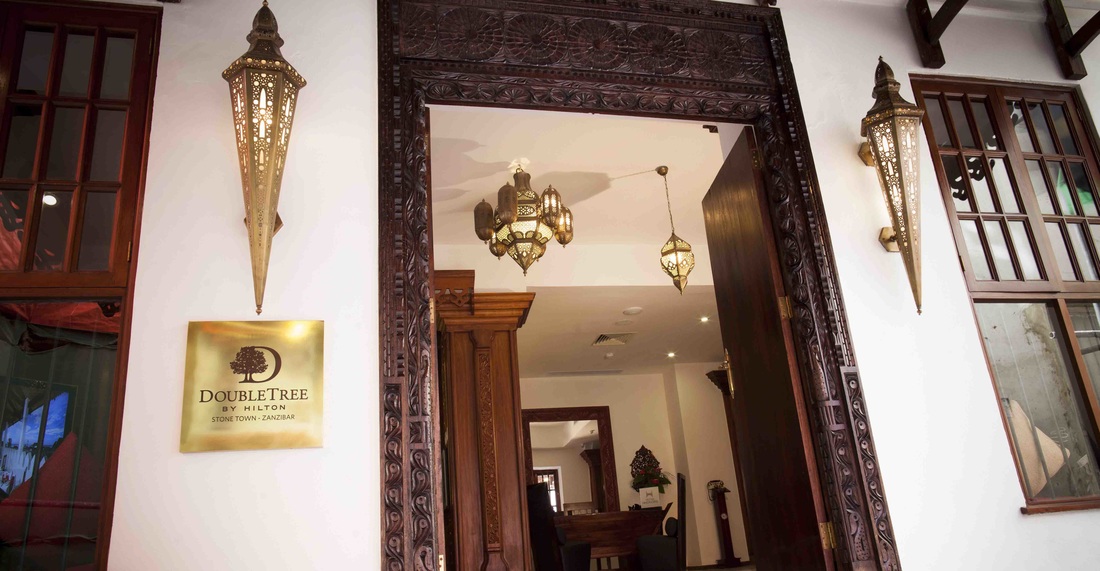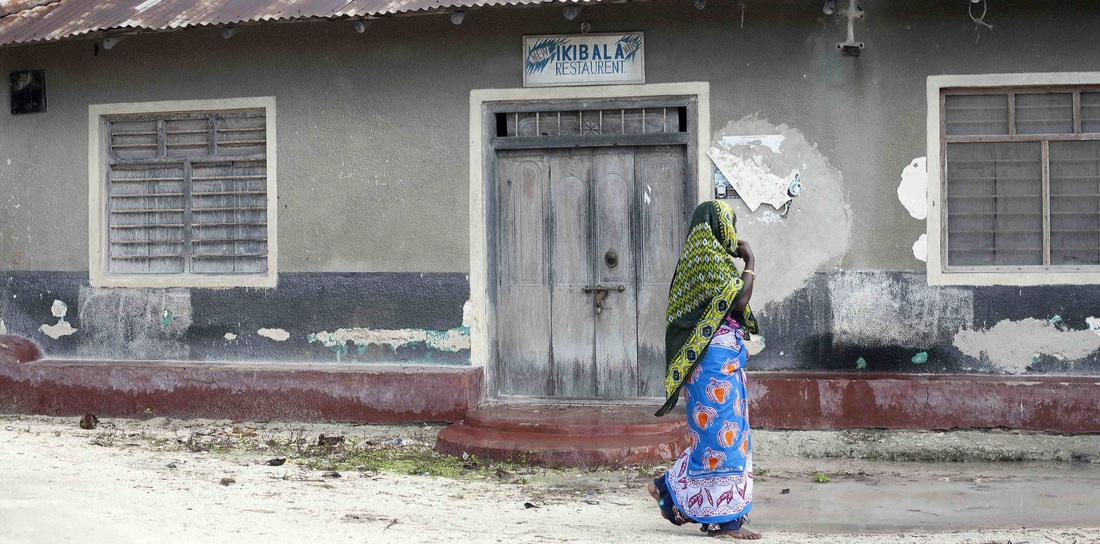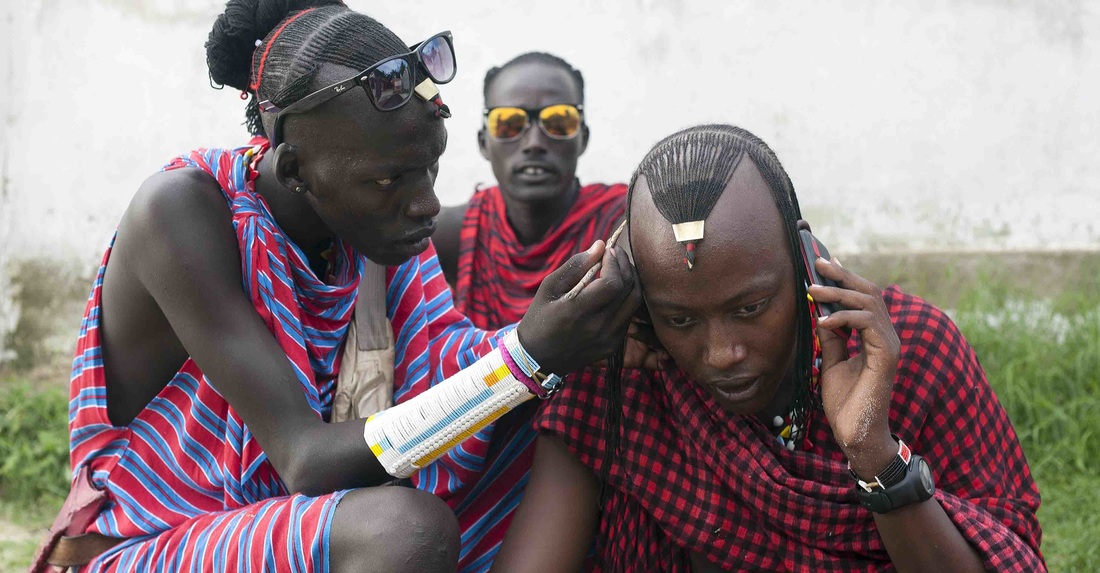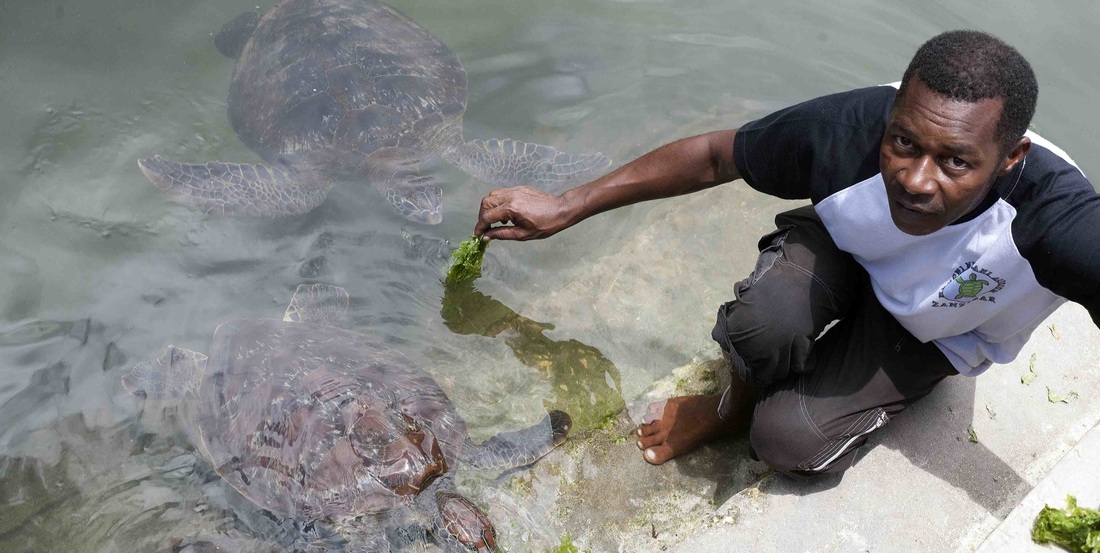DEPENDING on the conversation and which local you talk to Freddie Mercury spent his time in every other building in Stone Town.
The late Queen singer is certainly associated with at least two in the Zanzibar capital.
Multi-layered, occasionally loud, but with charm and an alluring history that makes it curious and exotic, Stone Town is a place like no other; just as the lamented singer was to world stages.
With tourism rising, it’s no surprise that several locations claim connections to the showman, born Farrokh Bulsara. We make a pilgrimage to one, more out of intrigue and thirst.
Sure, a photograph of the rock icon dressed in regal robes gazes out from Mercury’s Bar.
How close the association beyond name is debatable, but the place proves ideal for watching fishermen heave a boat ashore at sun down ahead of a vocal game of beach football.
The vibe is almost as lively at nearby Forodhani Gardens night food market; the impromptu stalls buzzing with cheap eats from octopus skewers to BBQ meats seem to draw as many cats as people so we take our appetites back among the milky white walls of Stone Town’s cherished architecture.
With tourism rising, it’s no surprise that several locations claim connections to the showman, born Farrokh Bulsara. We make a pilgrimage to one, more out of intrigue and thirst.
Sure, a photograph of the rock icon dressed in regal robes gazes out from Mercury’s Bar.
How close the association beyond name is debatable, but the place proves ideal for watching fishermen heave a boat ashore at sun down ahead of a vocal game of beach football.
The vibe is almost as lively at nearby Forodhani Gardens night food market; the impromptu stalls buzzing with cheap eats from octopus skewers to BBQ meats seem to draw as many cats as people so we take our appetites back among the milky white walls of Stone Town’s cherished architecture.
It is from these buildings that the capital derives much of its appeal and UNESCO World Heritage Site status.
And it is along one of many narrow alleyways that DoubleTree by Hilton Stone Town was born in 2014.
General manager Philippe Queriaud opened the tucked away gem after four years of renovation “inserting it into the local architecture”.
Once a large family home, it continues to blend with surroundings, offering modern comforts in a discreet boutique setting.
Smart rooms feature carved wood to retain the character of the hotel’s former life, while a rooftop terrace extends the superb Taraab Restuarant with views accompanied by some of the best dishes Zanzibar has to offer; Chef Alan’s crab soup is heaven on a spoon.
And it is along one of many narrow alleyways that DoubleTree by Hilton Stone Town was born in 2014.
General manager Philippe Queriaud opened the tucked away gem after four years of renovation “inserting it into the local architecture”.
Once a large family home, it continues to blend with surroundings, offering modern comforts in a discreet boutique setting.
Smart rooms feature carved wood to retain the character of the hotel’s former life, while a rooftop terrace extends the superb Taraab Restuarant with views accompanied by some of the best dishes Zanzibar has to offer; Chef Alan’s crab soup is heaven on a spoon.
“It had to be as authentic as possible. I even met with a lady who was born here and she said ‘wow’,” says Phillippe of the DoubleTree, the first international hotel brand to open on rustic islands absent of guns, plastic bags and chain stores.
“We are not like others that copy and paste in order to be exactly the same everywhere. What we copy is the quality and the standards - the procedures are always the same wherever we go in DoubleTree - but within this culture and history.
“The challenge was to comply with all the regulations of Stone Town with regards world heritage.
“It’s quite a new destination for culture tourism. It is quite well established for the European market. Italy was the core market for quite a long time. Now we have more British, American, French, German and the central European market. People are looking for the authenticity of Zanzibar.
“There is no traffic jam or pollution; there is one traffic light near the main market.
“It has history, scenery, the best sunset. It’s perfect for people who want to see something different.”
“We are not like others that copy and paste in order to be exactly the same everywhere. What we copy is the quality and the standards - the procedures are always the same wherever we go in DoubleTree - but within this culture and history.
“The challenge was to comply with all the regulations of Stone Town with regards world heritage.
“It’s quite a new destination for culture tourism. It is quite well established for the European market. Italy was the core market for quite a long time. Now we have more British, American, French, German and the central European market. People are looking for the authenticity of Zanzibar.
“There is no traffic jam or pollution; there is one traffic light near the main market.
“It has history, scenery, the best sunset. It’s perfect for people who want to see something different.”
Hence, Philippe’s team organises tours of the area’s other typical lime-washed buildings, many fronted by ornate wooden doors hiding courtyards.
Every turn presents something, but much of Stone Town’s charm stems from spectating life seemingly unchanged.
The historic area maintains a visible security presence to ensure tourist safety. While we felt comfortable, with some residents clearly poor it is respectful to be discreet with money and expensive cameras.
Hopefully the income brought by visitors will spread renovation energy throughout the less-loved parts of Stone Town.
Apart from a handful of international hotel names, this is not a place for brands and many shops and cafes retain individual style.
“It’s quite a new market,” says Philippe. “People are looking for a bit of adventure, but a comfortable adventure; Stone Town is a way to discover more than white sand.
“You will find people asking for money or trying to sell you things but as long as you are respectful and say no in a polite way…I’ve never faced an issue.
“It’s basically a very peaceful place to be. It’s never going to be changing too much. They are not too eager to grow. They just have to fine tune a little bit.”
Every turn presents something, but much of Stone Town’s charm stems from spectating life seemingly unchanged.
The historic area maintains a visible security presence to ensure tourist safety. While we felt comfortable, with some residents clearly poor it is respectful to be discreet with money and expensive cameras.
Hopefully the income brought by visitors will spread renovation energy throughout the less-loved parts of Stone Town.
Apart from a handful of international hotel names, this is not a place for brands and many shops and cafes retain individual style.
“It’s quite a new market,” says Philippe. “People are looking for a bit of adventure, but a comfortable adventure; Stone Town is a way to discover more than white sand.
“You will find people asking for money or trying to sell you things but as long as you are respectful and say no in a polite way…I’ve never faced an issue.
“It’s basically a very peaceful place to be. It’s never going to be changing too much. They are not too eager to grow. They just have to fine tune a little bit.”
Historical links with Oman thrive here, from the Sultan’s Palace overlooking the ocean to the dress of many locals we find in the equivalent of Speaker’s Corner in London. Our guide indicates a phone high up a pole and quips: “You can make a call for free…if you can reach.”
His mood darkens in the former slave market. A monument of people in shackles, and cuffs and chains in a cellar, recall an era that scarred Zanzibar.
The trip takes a lighter, surreal turn after a short boat ride next day when we find ourselves tickling a 157-year-old giant tortoise, one of dozens roaming free but protected on Prison Island.
Once designed as a stopping point for African slaves bound for the west – and latterly used to quarantine arrivals to the “spice islands” – it is now a sanctuary for endangered Aldabra tortoises, surrounded by clear, ideal snorkeling waters.
Shaped as much by historical incursions from Portugal, India, Oman and England as an environment with flourishing fishing and spice exports, Zanzibar’s tourism is slowly growing.
That has meant more demand for both ‘catch of the day’ and tours of farms that grow cardamom, cinnamon, cloves, nutmeg and more.
Our outing to the latter and the main market was a welcome dip into the rural heartland.
His mood darkens in the former slave market. A monument of people in shackles, and cuffs and chains in a cellar, recall an era that scarred Zanzibar.
The trip takes a lighter, surreal turn after a short boat ride next day when we find ourselves tickling a 157-year-old giant tortoise, one of dozens roaming free but protected on Prison Island.
Once designed as a stopping point for African slaves bound for the west – and latterly used to quarantine arrivals to the “spice islands” – it is now a sanctuary for endangered Aldabra tortoises, surrounded by clear, ideal snorkeling waters.
Shaped as much by historical incursions from Portugal, India, Oman and England as an environment with flourishing fishing and spice exports, Zanzibar’s tourism is slowly growing.
That has meant more demand for both ‘catch of the day’ and tours of farms that grow cardamom, cinnamon, cloves, nutmeg and more.
Our outing to the latter and the main market was a welcome dip into the rural heartland.
Unguja, largest of the islands that comprise Zanzibar, shows another side to real life as well as tourist leisure opportunities a 75-minute drive north at Nungwi Beach.
It’s a place of contrast, from the thrill of parasailing over the Indian Ocean to villagers who still largely live off food and commerce brought by the sea.
Our glide above the fishing dhows off the coast of neighbouring Kendwa Beach – courtesy of ZP Ocean Sports – reveals lush tropical greenery beyond sandy shorelines.
Along the coast, DoubleTree by Hilton Resort Zanzibar – Nungwi – a landscaped enclave of ocean-facing rooms and suites – proves a glorious base blessed with good food, charming staff and a parrot that mimics phone ring tones.
With its enticing pool and spa, and panorama of an azure ocean dotted with bobbing boats, it’s hard to leave. But manager Marco Calderone encourages guests to explore.
It’s a place of contrast, from the thrill of parasailing over the Indian Ocean to villagers who still largely live off food and commerce brought by the sea.
Our glide above the fishing dhows off the coast of neighbouring Kendwa Beach – courtesy of ZP Ocean Sports – reveals lush tropical greenery beyond sandy shorelines.
Along the coast, DoubleTree by Hilton Resort Zanzibar – Nungwi – a landscaped enclave of ocean-facing rooms and suites – proves a glorious base blessed with good food, charming staff and a parrot that mimics phone ring tones.
With its enticing pool and spa, and panorama of an azure ocean dotted with bobbing boats, it’s hard to leave. But manager Marco Calderone encourages guests to explore.
His guide leads us to Mnarani Marine Conservation Pond where volunteers nurture newly hatched turtles and treat rescued adults. They’ve also convinced locals not to eat - or sell the shells - of Hawksbill turtles caught in error.
Outside, fishermen fix boats and nets as carpenters fashion new dhows from mahogany.
Many nearby homes appear basic, served by rugged tracks and fluctuating power, with air-con a rarity, yet excited chatter and laughter is never far away; we are frequently greeted with “jambo” (hello) and “karibu” (welcome).
Further on, bars and restaurants punctuate the beach as hawkers tout sunset cruises and carved wooden nameplates.
The Maasai markets demand attention. Colourful warriors and herdsmen usually associated with mainland Tanzania, Kenya and the Serengeti, they use their distinctive appearance to good advantage, ornate masks and other souvenirs suddenly tempting given a glimpse of this semi-nomadic culture.
Among them we find an older warrior. Rocco reveals he’s too old to “fight lions” like his more youthful neighbours.
The scars on his face and body, alongside a scuffed wooden club, suggest it might not all be bravado.
DETAILS:
FOR prices and information about DoubleTree hotels in Zanzibar visit www3.hilton.com
FOR water sports at Kendwa beach go to www.zanzibarparasailing.com
Flydubai run a regular direct service to Zanzibar's main airport from DXB. For prices and schedule, go to www.flydubai.com
Outside, fishermen fix boats and nets as carpenters fashion new dhows from mahogany.
Many nearby homes appear basic, served by rugged tracks and fluctuating power, with air-con a rarity, yet excited chatter and laughter is never far away; we are frequently greeted with “jambo” (hello) and “karibu” (welcome).
Further on, bars and restaurants punctuate the beach as hawkers tout sunset cruises and carved wooden nameplates.
The Maasai markets demand attention. Colourful warriors and herdsmen usually associated with mainland Tanzania, Kenya and the Serengeti, they use their distinctive appearance to good advantage, ornate masks and other souvenirs suddenly tempting given a glimpse of this semi-nomadic culture.
Among them we find an older warrior. Rocco reveals he’s too old to “fight lions” like his more youthful neighbours.
The scars on his face and body, alongside a scuffed wooden club, suggest it might not all be bravado.
DETAILS:
FOR prices and information about DoubleTree hotels in Zanzibar visit www3.hilton.com
FOR water sports at Kendwa beach go to www.zanzibarparasailing.com
Flydubai run a regular direct service to Zanzibar's main airport from DXB. For prices and schedule, go to www.flydubai.com
